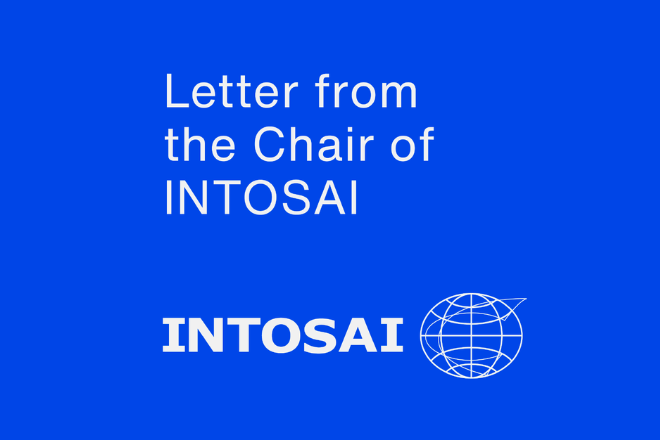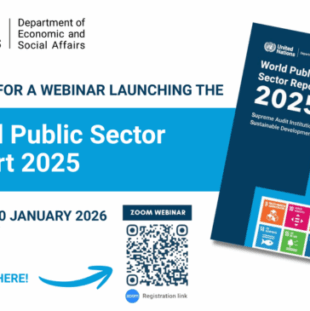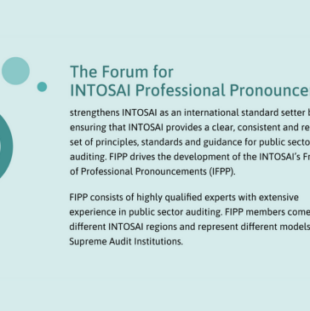What is the role of Supreme Audit Institutions in relation to immigrants, refugees, and stateless people?

The chair of the International Organization of Supreme Audit Institutions (INTOSAI), Minister Bruno Dantas, in his January 2024 open letter, writes about INTOSAI’s role in addressing migration issues, equality, and inclusion.

The 1951 Refugee Convention, the 1967 Protocol, and the 1969 Refugee Convention of the Organization of African Unity (OAU) define a migrant as a person who moves within or out of their country of origin. Meanwhile, immigrant is a person who arrives from another country and emigrant is the one who leaves their home country. The term refugee refers to a person who, due to a well-founded fear of persecution and a risk of violence or violation of human rights, is forced to leave their country of origin to seek international protection. As for stateless people, they have no nationality and are not considered nationals of any country. These individuals endure the deprivation of basic rights and often face persecution.
The flow of migrants, refugees, and to a lesser extent, stateless people, is a social phenomenon and a global reality. This movement is shaped by various international scenarios and changes throughout history. It can occur either through forced displacement or voluntary relocation.
According to the United Nations High Commissioner for Refugees (UNHCR), there are currently 114 million displaced people, mainly because of conflicts. Filippo Grandi, head of the UNHCR, described the phenomenon as “a tangible but sometimes neglected symptom of the world’s current extreme disorder” in his annual presentation to the United Nations Security Council, held in October of 2023.
However, these numbers do not account for all individuals within the immigrants, refugees, and stateless people group. Aside from conflicts, other factors, such as socio-economic conditions, and more recently, environmental issues, prompt people to cross their country’s borders. Extreme climate events, such as hurricanes, droughts, and floods, directly affect communities’ lives, often forcing them to migrate in search of safer and more sustainable circumstances. The World Migration Report 2022, prepared by the International Organization for Migration (IOM), estimates that in 2020, there were 281 million international migrants worldwide, equivalent to 3.6% of the global population. This number has increased over the past decades and is projected to rise further in the coming years. To illustrate the significance of this trend, the current total number of international migrants is three times higher than in the 1970s.
Even though it is fundamental to acknowledge that migration can bring benefits to the destination country, including economic advantages, it is often perceived as a source of harm and threat. Therefore, many countries adopt restrictive migration policies, which often increase the risk of exploitation and human trafficking for individuals needing and seeking to migrate. It is also important to consider that an intense migration flow can have adverse effects on the provision of public services, such as education and health, due to the unexpected increase in demand.
While a country may have a progressive and inclusive legislation regarding public policies, it is important to emphasize that merely granting entry permission is insufficient to ensure humans rights and dignity to those arriving in the destination country. Providing minimal support is essential, and there are many challenges to overcome in order to create a welcoming environment that genuinely humanizes and transforms the reality of these individuals.
Migration is a multifaceted issue that involves the human rights of migrants, refugees, and stateless individuals, usually found in highly vulnerable situations. According to UNHCR data, approximately 75% of the world’s refugees live in poverty (Refugees’ Access to Jobs and Financial Services, 2023). In this scenario, Supreme Audit Institutions can play an important role in improving the living conditions of these populations.
We can carry out various types of work, not only to assess compliance but also to identify risks and opportunities for improvement in the processes and policies related to these migratory flows. This ensures transparency to society and makes it possible to suggest improvements, if deemed necessary and appropriate.
The International Organization of Supreme Audit Institutions (INTOSAI) supports the Equal Futures Audit Changemakers program of the INTOSAI Development Initiative (IDI), in which the audit institutions of Argentina, Brazil, Chile, Costa Rica, Ecuador, Egypt, El Salvador, Guatemala, Honduras, Indonesia, Kosovo, Liberia, the Maldives, Mauritania, Nepal, the Netherlands, Palestine, Paraguay, Philippines, Serbia, South Korea, Thailand, Tunisia, Tuvalu, Uruguay, and Vanuatu participate. The project aims to transform a group of auditors into effective agents of change. They will be responsible for drawing up a strategy for their respective audit institutions and carrying out an audit on equality and inclusion issues. Migration is one of the relevant causes of inequality addressed in this initiative.
Migration is also mentioned in the Sustainable Development Goals of the UN 2030 Agenda. It appears both across different goals and in specific ones, such as in SGD 10 – Reduce inequality within and among countries, which has as one of its targets to “facilitate orderly, safe, regular and responsible migration and mobility of people, through the implementation of planned and well-managed migration policies”.
The growing phenomenon of migration emerges as a crucial challenge that requires attention of the Supreme Audit Institutions, emphasizing the need for global strategies and cooperation to handle the inflow of refugees.
INTOSAI acknowledges the importance of public policies regarding migration issues in matters of equality and inclusion. As Supreme Audit Institutions, we have not only the ability but also the duty to add value to society in matters of migration flow and to contribute to building a more prosperous, fair, and egalitarian world.






